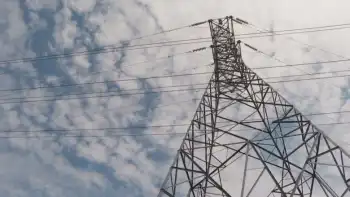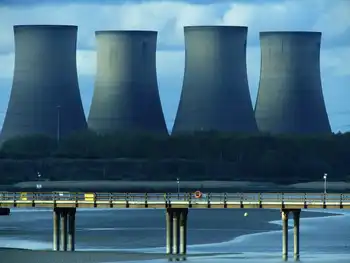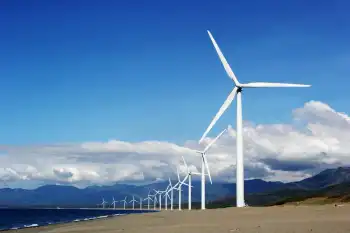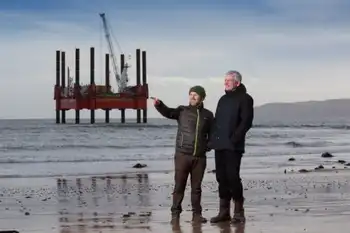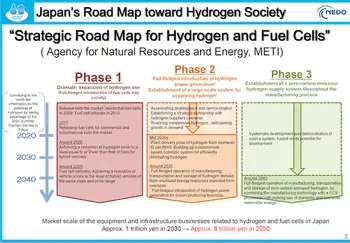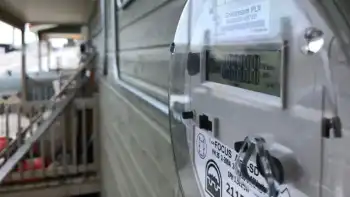German official says nuclear would do little to solve gas issue
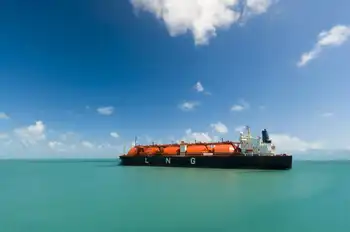
Arc Flash Training CSA Z462 - Electrical Safety Essentials
Our customized live online or in‑person group training can be delivered to your staff at your location.

- Live Online
- 6 hours Instructor-led
- Group Training Available
Germany Nuclear Phase-Out drives policy amid gas supply risks, Nord Stream 1 shutdown fears, Russia dependency, and energy security planning, as Robert Habeck rejects extending reactors, favoring coal backup, storage, and EU diversification strategies.
Key Points
Ending Germany's last reactors by year end despite gas risks, prioritizing storage, coal backup, and EU diversification.
✅ Reactors' legal certification expires at year end
✅ Minimal gas savings from extending nuclear capacity
✅ Nord Stream 1 cuts amplify energy security risks
Germany’s vice-chancellor has defended the government’s commitment to ending the use of nuclear power at the end of this year, amid fears that Russia may halt natural gas supplies entirely.
Vice-Chancellor Robert Habeck, who is also the economy and climate minister and is responsible for energy, argued that keeping the few remaining reactors running would do little to address the problems caused by a possible natural gas shortfall.
“Nuclear power doesn’t help us there at all,” Habeck, said at a news conference in Vienna on Tuesday. “We have a heating problem or an industry problem, but not an electricity problem – at least not generally throughout the country.”
The main gas pipeline from Russia to Germany shut down for annual maintenance on Monday, as Berlin grew concerned that Moscow may not resume the flow of gas as scheduled.
The Nord Stream 1 pipeline, Germany’s main source of Russian gas, is scheduled to be out of action until July 21 for routine work that the operator says includes “testing of mechanical elements and automation systems”.
But German officials are suspicious of Russia’s intentions, particularly after Russia’s Gazprom last month reduced the gas flow through Nord Stream 1 by 60 percent.
Gazprom cited technical problems involving a gas turbine powering a compressor station that partner Siemens Energy sent to Canada for overhaul.
Germany’s main opposition party has called repeatedly to extend nuclear power by keeping the country’s last three nuclear reactors online after the end of December. There is some sympathy for that position in the ranks of the pro-business Free Democrats, the smallest party in Chancellor Olaf Scholz’s governing coalition.
In this year’s first quarter, nuclear energy accounted for 6 percent of Germany’s electricity generation and natural gas for 13 percent, both significantly lower than a year earlier. Germany has been getting about 35 percent of its gas from Russia.
Habeck said the legal certification for the remaining reactors expires at the end of the year and they would have to be treated thereafter as effectively new nuclear plants, complete with safety considerations and the likely “very small advantage” in terms of saving gas would not outweigh the complications.
Fuel for the reactors also would have to be procured and Scholz has said that the fuel rods are generally imported from Russia.
Opposition politicians have argued that Habeck’s environmentalist Green party, which has long strongly supported the nuclear phase-out, is opposing keeping reactors online for ideological reasons, even as some float a U-turn on the nuclear phaseout in response to the energy crisis.
Reducing dependency on Russia
Germany and the rest of Europe are scrambling to fill the gas storage in time for the northern hemisphere winter, even as Europe is losing nuclear power at a critical moment and reduce their dependence on Russian energy imports.
Prior to the Russian invasion of Ukraine, Berlin had said it considered nuclear energy dangerous and in January objected to European Union proposals that would let the technology remain part of the bloc’s plans for a climate-friendly future that includes a nuclear option for climate change pathway.
“We consider nuclear technology to be dangerous,” government spokesman Steffen Hebestreit told reporters in Berlin, noting that the question of what to do with radioactive waste that will last for thousands of generations remains unresolved.
While neighbouring France aimed to modernise existing reactors, Germany stayed on course to switch off its remaining three nuclear power plants at the end of this year and phase out coal by 2030.
Last month, Germany’s economy minister said the country would limit the use of natural gas for electricity production and make a temporary recourse to coal generation to conserve gas.
“It’s bitter but indispensable for reducing gas consumption,” Robert Habeck said.





